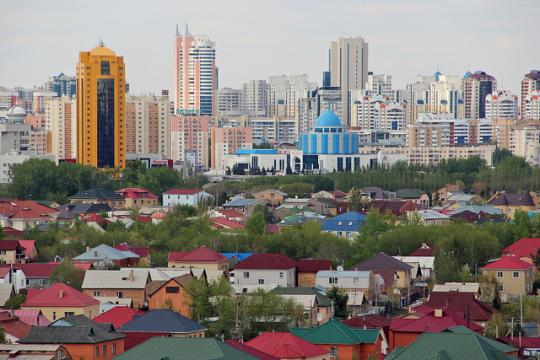Also available in:
ру́сский язы́к

Photo: Shynar Jetpissova / World Bank
Seven years ago, Kazakhstan’s government set the development of e-government as a priority. As a result, today there are more than 2.6 million users registered on the country’s “electronic government” portal ( www.e-gov.kz), accounting for almost 30 percent of Kazakhstan’s economically active population.
On average, Kazakhstani people receive about 40 million different services a year electronically. In the next three years, e-government can completely switch to the mobile format.
All of these and many other successes through information and communication technologies (ICT) over the past decade have enabled Kazakhstan to take the 28th place out of 198 countries in the UN e-government development rating in 2014 (Picture 1, below) and enter into top 50 (of 144 countries) in the global competitiveness ranking.

development rating in 2014)
Kazakhstan was the first country in the Central Asian region with an “Open Government” initiative. The necessity of constructing an Open Data platform was reflected in the “Information Kazakhstan – 2020” state program.
This program involved analytical work on the country's Open Data readiness assessment (based on World Bank methodology), followed by a launch of the beta version of an Open Data portal and a contest among developers for the creation of applications based on Open Data.
One of the most critical factors in the process was the legal framework, which requires regulation for data access in all spheres. Therefore, there was a lot of work on amendments and other changes to Kazakhstan’s information laws.
Public authorities and private organizations have collaborated on the initial stages of the data collection process. However, the initiative is not without some challenges: much of the data received is not in machine-readable form, which is a prerequisite for Open Data. This required substantial reformatting, editing and conversion, which can considerably slow the process down. We expect that, after the adoption of new amendments to the information law, the data collection process will be accelerated and simplified.
By the end of 2013, there were 103 sets of data on Kazakhstan’s Open Data portal. Today, the number of Open Data sets is 789 (See Picture 2). The portal has feedback functionality, so that people can leave comments, requests and even evaluate their favorite data. We try to procure new and expanded data based on user requests.

One of the key uses of Open Data is the creation of useful applications and services based on data sets: in September 2014, there was a competition among national universities and colleges for mobile application development based on Open Data among the students of universities and colleges. There were 24 mobile application submitted, according to the results of the competition:

"Kindergartens"
- The winning team developed a catalogue of Astana kindergartens that shows locations on the map, as well as giving contact details. (See Picture 3).
- Second prize was awarded to the developer of an e-licensing app (See Picture 3.2). This application allows users to view individuals and entities that have various electronic licenses, displaying detailed information on business contacts as well as location on the map.
- Third place went to a student who developed a city guide for Astana; the jury noted the author's thorough approach to application design.
Currently, a new version of the portal is being developed using comments and suggestions from external visitors. The launch of the portal’s new version is planned by the beginning of the next year.
By opening data and inviting citizens to participate, the government of Kazakhstan settles two things: solving the asymmetry between citizens and government, and providing new tools to act. With these tools, citizens can make better informed decisions and evaluate how their actions will impact public policy, leading to a more comfortable and respectful life for all.


Join the Conversation